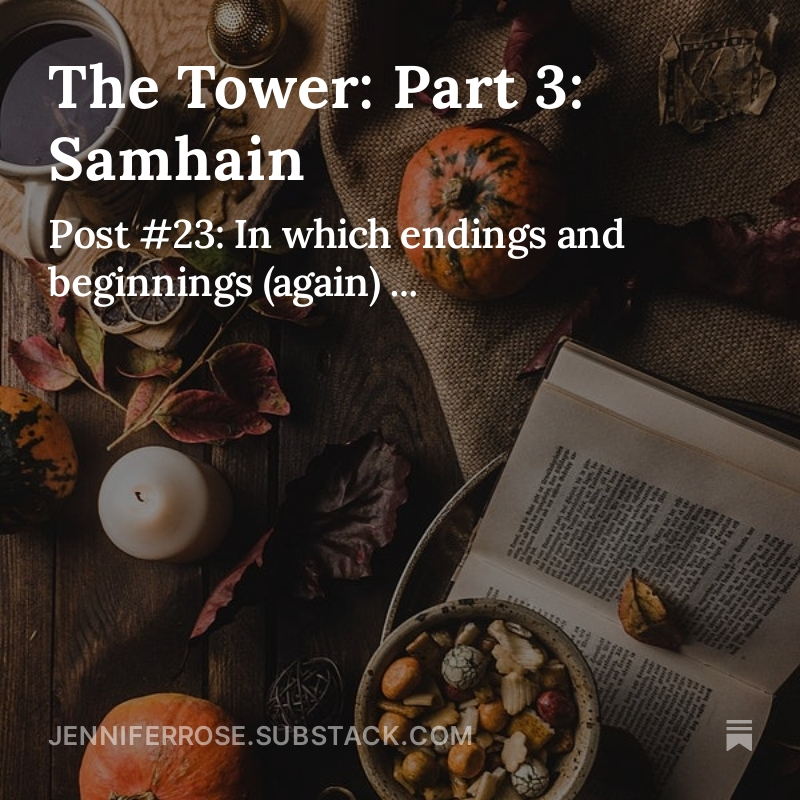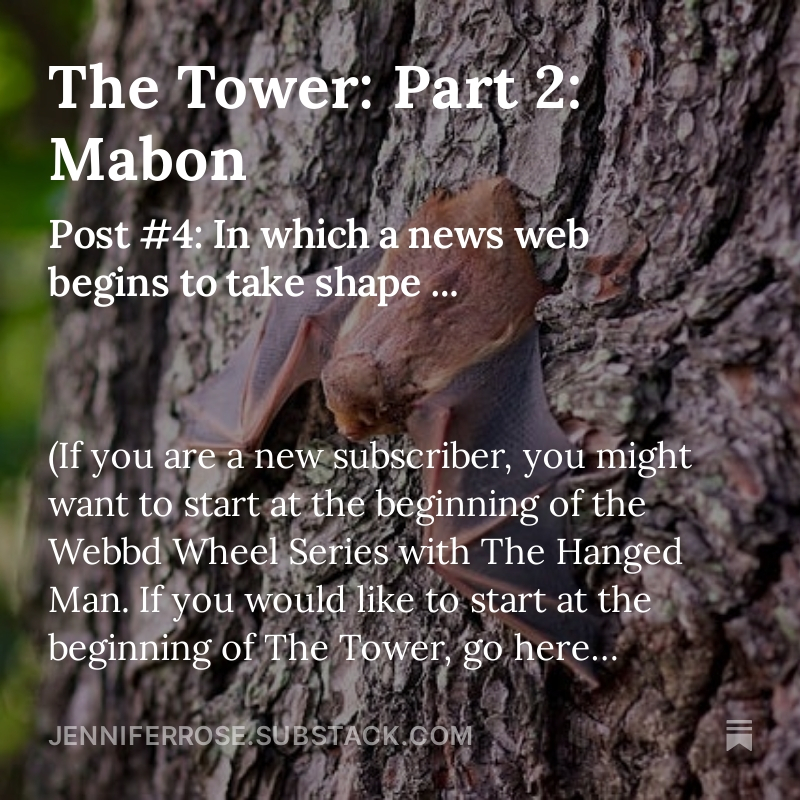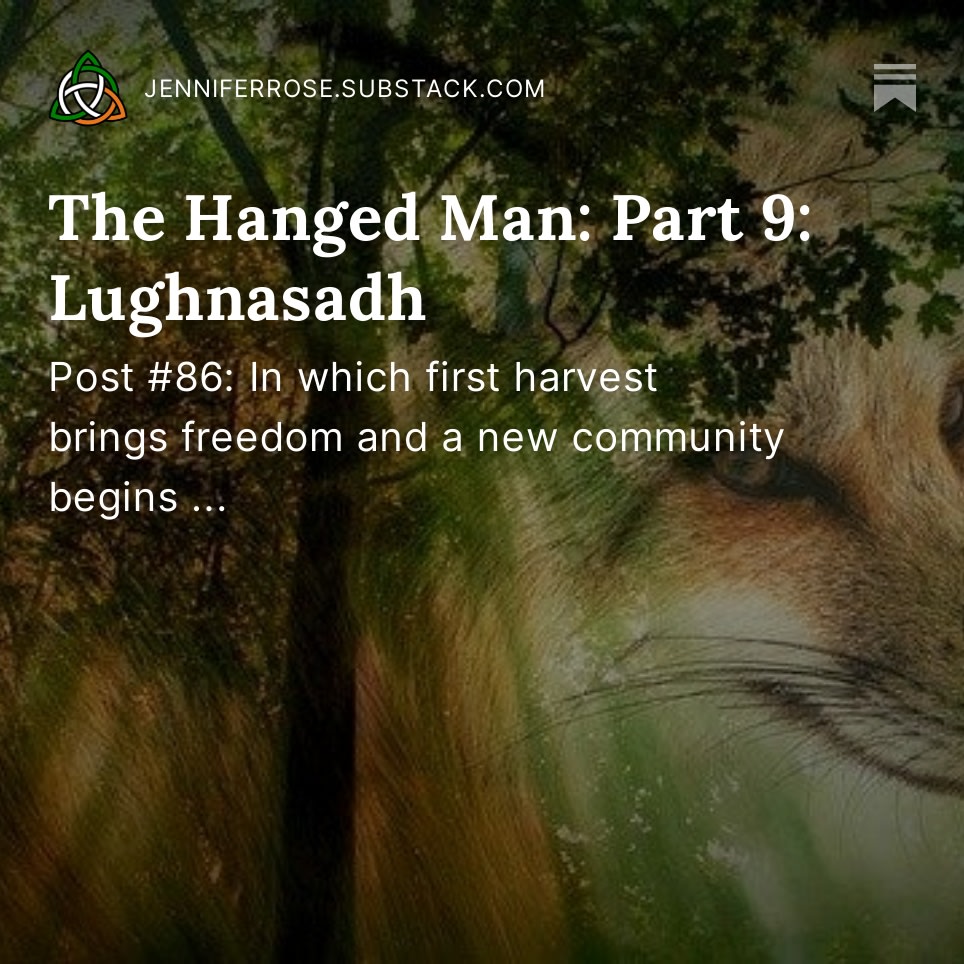by Jenny Rose | Dec 15, 2016 | Connection & Community, Emotional Intelligence
Last week, my partner and I went to the movies and saw Arrival. Without giving any spoilers, I found it a stunning story about communication, among other things. It was the communication piece that really grabbed my attention, though.

Photo by Jason Rosewell on Unsplash
Ever since then, I’ve been thinking in a newly focused and intentional way about communication — what it means, how it looks, where it breaks down and how to do it well.
The truth is, I don’t want to know how to do it well. I want to know how to do it perfectly.
Another truth is I’m always thinking about communication, because I’m always working on my book, on this blog or on relationships, and they all involve communication. My partner says there is no relationship without communication, and I think he’s right.
As regular readers know I am wont to do, I pulled out my Random House Collegiate Dictionary to give myself a starting place. Anyone who’s used a dictionary knows there are often multiple meanings for any given word, so I made a list of the definitions I liked, cut and pasted a little, and came up with this (emphasis is mine):
Communication:
- To give or interchange information to/with one another.
- To express one’s true thoughts, feelings and moods easily.
- To have or form a connecting passage.
Although I’m intellectually satisfied with this definition, it feels incomplete and inadequate. In fact, it makes me mad. If only effective communication was this easy and simple! Instead, it seems to be one of the most desperately difficult things we do, and we must communicate if we are to manage life in today’s world.

Photo by Bewakoof.com Official on Unsplash
How many ways does communication break down for us in a day? Are we even aware of all the ways it breaks down? How often are we communicating something completely unintentional?
At the same time, have we ever, in the history of humankind, had so many devices and forms of communication at our disposal? Have we ever had access to so much information and so many other people?
So why aren’t we happier, more authentic, more secure and sure of our worth? Why are so many of us starving for healthy, fulfilling connection? What’s missing?
If I knew, I would fix it in my relationships, but therein lies one of the problems.
This is the part that always sneaks up and bites me in the ass.

Photo by Toa Heftiba on Unsplash
Not everyone wants the level and quality of communication I do. Generally, I don’t take this cold little fact personally, but among my nearest and dearest it does feel personal, absolutely. I feel utterly and completely rejected and shut out, in fact.
Another problem is that not everyone is capable of the level and quality of communication I am. Many people carry terrible damage or experience disability that prevents them from being able to participate in touch, in sex, in eye contact and nonverbal cues, even in conversation. I can tell you from personal experience it can be very, very difficult to sort out those who want to and are unable to from those who simply don’t want to. In the end, it doesn’t matter, it all comes to the same thing. When communication is limited, relationship is limited.
Limitation frustrates me, whether it’s my own or imposed by others. I can do more. I want to do more.
A third issue is that communication is two-edged. It’s an enormously powerful skill and ability, both constructively and destructively. We all know people who use communication as a weapon, not a tool. Sometimes, a simple, ominous clearing of the throat can be far more terrifying and damaging than a blow. Both actions are communication. Even worse are people who deploy words saying one thing and demonstrate action that says another, like the abuser who says he loves you while he hits you. This is called gaslighting, and I’ll write about it in the future. It needs a post all its own.
A fourth point is we don’t have enough silence in the world. Silence is the cup that holds communication. It takes time to write, to create, to speak, to hug, to make love, to nurse an infant. It takes time to nurture a friendship, a lover, a child. Sitting with the ill or dying takes time and quiet. Listening takes time and presence. Our slavery to technology and stimulation has all but eliminated uninterrupted time for our relationships with ourselves, let alone with others.
And that brings up a fifth aspect. If we don’t, won’t or can’t communicate effectively and honestly about who we are, what we need and want and the truth of our thoughts and feelings, we can’t form a connecting passage, to quote the above definition. We’re not even connected to ourselves.
As though all those things didn’t make communication a big enough hairball, we have to remember who we are. We’re human, which is to say each one of us carries stories, beliefs, expectations, memories, scars and bleeding wounds that get in our way every time we communicate, even with (especially with) those we care deeply about. We all have painful triggers. We all get hijacked. We make assumptions. We misunderstand, deny, obfuscate, conceal. We filter through our particular history and experience. Few of us have any training in effective communication. We can tweet or text a sentence or two, but ask us to do more and we’re at a loss. For one thing, we don’t have time to deal with it.
We also have rules about communication, individual rules, tribal rules, cultural rules. We have rules about acceptable language, rules about keeping secrets, rules about being indirect, rules about protecting others, rules about loyalty and duty, rules about privacy, rules about what we’re willing to reveal to whom, rules about who we trust and don’t.
Even the words we choose can make or break communication. Here’s an example out of my own life I’m feeling particularly resentful about at the moment.
I’m a woman, a partner, a sister, a daughter and a mother. I love wholeheartedly and I’m very clear about how important healthy relationship is to me. I know the people I love well, and I try hard to accommodate their personalities, preferences and idiosyncrasies. I’m not Miss Fixit. I’ve no investment in protecting people, and the four men in the world who I love most are unbelievably capable and intelligent adults.
When I say, “What can I do to help? “Is there anything I can do to help?” or “Is there anything I can do for you today?” I’m not implying they can’t manage their lives, dammit! I’m giving a message of love. I’m saying, “I’m here. You matter to me. I’m glad to lend you support. I’d love to collaborate/cooperate/work with you.” I’m making a connection. I’m giving what I most want. Catch me being insulted if someone asks if they can help me figure out how to run the errands, take care of work and cook a meal!
My male partner says, with great patience, that I should use the word “assist” instead of help.
Seriously???? These four idiot men, who know me better than anyone else, need me to tippy-toe with my language in order to hear a message of love and support?
Never mind. I’m over it. Figure out your own damn life, and I’ll figure out mine.
Furthermore, catch me allowing any of them to help me, even though I know that’s connecting for them. They don’t need anything from me, I don’t need anything from them.
See how that breaks down?
And half of that is about me. I’ve been taught to be indirect in my language, I’m giving others what I want myself (this never works well, because the recipient rarely understands that’s what I’m doing), I’m coming across as relentlessly mumsy-wumsy and overprotective, and I’m assuming these four men are like me and won’t ask for help if they need it, but I’m the one who can’t ask for help, and now I’ve fastened myself more firmly in that position because they won’t cooperate with me and allow me to love them, so I’m not going to give them the satisfaction of…
And so on.
My conclusion about all this is that communication among human beings is a clusterfuck. It’s confusing. It’s messy. Most of us don’t know what the hell we’re doing and many of us are not that well intentioned in the first place. We have wildly varying degrees of ability with wildly varying aspects of communication. We try to hide, we misunderstand, we make mistakes, we don’t remember accurately and we’re often terrible at listening. We want to be right, we want to be validated and agreed with, and we want others to meet our needs quickly and perfectly so life feels simple and uncluttered, emotionally, at least.
I’m never going to do it perfectly, and neither is anyone else.
But hey, let me know if I can help you in any way!

Photo by Quino Al on Unsplash
All content on this site ©2016
Jennifer Rose
except where otherwise noted
by Jenny Rose | Jun 22, 2024 | Emotional Intelligence, Needs
In a recent conversation, someone asserted to me that ultimately everyone does what they want. I felt an immediate fury. That does not describe my life at all. I chewed on my outrage and resentment for a few weeks, simmering, until I decided to get over it and figure out why I was so hijacked.
I was immediately lost in the puckerbrush. Making choices about what we do and don’t do is intimately tied to needs and wants, and I have yet to be able to distinguish between the two once beyond the level of survival needs, or find any kind of clarity from someone else. Needs and wants are unpleasant territory I don’t want to explore. (See? There it is. I don’t want to. Yet I am, and I might need to.)

Photo by Bryan Minear on Unsplash
Then there’s the whole actions versus words aspect. People say they want things but don’t act accordingly. If we really want something, our behavior reflects it. If our behavior does not reflect our stated wants, we’re deceiving ourselves, or someone else, or both. I deeply distrust mixed messages. More unpleasant territory and old trauma.
Choice is in there, too. Choice is a big subject and a major theme in this blog. As I’ve mused on the statement ‘we all do what we want to do’ and made notes (you know I always make notes), I’ve wondered how we can compare a parent in some war-torn place attempting to keep their starving child alive another day with a wealthy person trying to decide if they want to fly their private plane to Paris for dinner or stay in and watch a movie in their in-home theater and have their chef prepare a seven-course meal. With wine, naturally.
One person has limited choices, all excruciating, to achieve continued survival for a few hours. The other has almost unlimited choices, all luxuries. How can I possibly compare the two? Can we say the parent trying to keep their child alive is doing what they want to do? Come on! Yet they do want to keep their child alive, right?
Perhaps it seems complicated and confusing because it’s complicated and confusing.
I wound up with a page full of notes, some sobering personal revelations, and a hairball.
On an internet search, I found articles pointing out the distinction between doing exactly what we want to do in any given moment (a toddler or a hedonist) and doing things we don’t want to do in service to an outcome we do want. That made sense to me.
If we focus on wanted outcomes rather than individual actions, we must have the ability to plan, look ahead, anticipate, and understand possible consequences of our actions. We also must attempt to predict the responses and reactions of the people around us to our actions, which means we have to understand something about emotional intelligence …

Photo by Manuel Sardo on Unsplash
… and now we’re back in the puckerbrush. I hate predictions. I don’t like leaps of faith. (I have a magnet on my fridge that says “Leap and the net will appear.” I don’t know why I keep it. It makes me mad every time I read it. Show me the warranty on that net. Show me the weight testing. Show me the damn net, in fact. Who will set it up when I leap? Are they paying attention or looking at their phone?) I trust my intuition, but I know I can be wrong. People are unpredictable. Life is unpredictable.
And yet we humans, including me, make choices all day long every day based on what we think will or might or could happen next. I’ve written about attachment to outcomes before. As I get older I’ve replaced a lot of my desired specific outcomes with simply wanting to know I did my best, regardless of outcomes. I may not like the outcome I get, but my integrity remains intact.
And then there are the people who don’t seem to understand actions and consequences in any kind of relationship. They choose what they choose in the moment and are hurt and/or outraged to discover the downstream consequences of that choice, especially in the context of many other choices. I observe this is a frequent divide along male/female lines. Women generally see everything as connected. Men generally see most things as discrete, in their own box. This is just one reason why I think “romantic” male/female relationships can be so devastating. We are often on different pages without knowing it.
If it’s true that we all do what we want in service to a desired outcome, what happens when my choices collide with yours? If you perceive me as blocking progress to your desired outcome you’re going to feel angry, and vice versa. We’re going to want each other to make different choices aligning with our personal desires. Most of the time, people won’t do that. We’re all attached to the outcomes we want.
A big piece of this for me is emotional labor, that hidden torrent winding through my life, sweeping away incalculable energy, time, and innocence. One of my priorities is healthy relationships. Close healthy relationships require time and attention; the ability to make choices for the good of the relationship rather than considering only our own wants and needs. This is an ongoing practice, not doing something we really don’t want to do once every six months and expecting applause. It means we have to face our own demons, learn to communicate clearly and honestly, negotiate, share power, and problem solve. It means boundaries and respect. It means reciprocity.
Having learned about reciprocity, I now prioritize my relationships to the degree the other does. I will not sign up to do all the emotional labor. I’m not interested in a close relationship like that. The price is too high. I’d rather put my energy into my relationship with myself. At least I appreciate my own efforts!
My conclusion about this ‘we all do what we want’ thing (gritted teeth – it still makes me mad), is it may be true if we consider our choices in the context of outcomes. I’ve made a lot of choices out of the clear knowledge that they were simply the right thing to do, too, choices that have been terrible for me, terrible in some of their consequences, yet ultimately still were the right thing for me to do. I had no outcome in mind. I don’t regret those kinds of choices, but they left permanent scars.

Photo by Cristian Newman on Unsplash
I want to blame others for all the time I’ve spent doing things I didn’t want to do, but it seems what we do and don’t do are entirely in our own hands, our own responsibility. Our lives are built on the choices we make, big and small, every hour of every day. If we don’t like our lives, we need to pay attention. Perhaps the useful question to ask ourselves if we hate what we’re doing at any given moment is, “Why am I doing this?” If we’re focused on a particular desired outcome, we may need to stop and think about whether our actions are effective in getting us there. Spending years of our lives desperately hoping and trying to reach an outcome and doing things we hate is not effective. I know this from personal experience. Our wants and needs change over time; what we once longed for may no longer be something we’re interested in. Sometimes we need to reality check ourselves. If we’ve been trying to get loved, for example, or please someone for a long period of time, it might be time to acknowledge our goal is not attainable or not worth attaining. Sometimes no matter how hard we work for an outcome it’s not achievable.
Then there’s the flip side: None of us do what we don’t want to do. That one is equally hard for me to swallow, but that’s a conversation for another day.
Questions:
- How much of each day do you spend doing things you don’t want to do? Why?
- What desired outcome(s) in your life requires you to do things you don’t want to do?
- Do you see your daily choices as isolated or part of a larger context attached to your wants and needs?
- Do you feel forced to labor emotionally? What would happen if you stopped?
- Who in your life reciprocates your level of emotional labor?
Leave a comment below!
To read my fiction, serially published free every week, go here: 
by Jenny Rose | Feb 3, 2024 | Connection & Community, Emotional Intelligence
For me, February 1st is the first day of spring. I know it’s early. I like it that way. I like the anticipation, the half-intuited first stirring of life under the soil, under last year’s debris, the slow, cold wakening of seeds, stiff in their dormant shells but quickening, murmuring, “Is now the time …?”
The birds are the first harbingers for me. Here, in this place, a small city in central Maine, it’s the crows, the jays, the cardinals, and the little tufted titmice. The crows and jays complain in harsh voices of salt-encrusted pavement, tired snow over lumpy ice, the steely cold. Cardinal pairs flit in my bare, bedraggled forsythia, and visit the feeders, a startling splash of color in the grey and bone landscape.
The titmice sing. Joyful, bursting little songs of nests and eggs, of green growth and warming light. The first spears of bulbs, the budding lilac, the luscious magnolia petals are in their song, though those things are only memories and hopes in the February garden.
(As I edit this, the first goldfinch outside the window.)
(On the morning of the day I publish this, at dawn, the chickadee’s two-note spring call.)

Photo by Ales Krivec on Unsplash
I have been feeling quiet. I’m burning down the last two Yule candles, gradually bringing out those of white and ivory, scented with lavender and herbs. Midwinter festivities are packed away, red table linen and warm-colored throws washed and folded for another season. I’ve been spring cleaning, making glass shine, mopping the scarred old floor, washing cupboards and doors. I walk to and from work bundled up in wool and fleece, the cleats on the bottoms of my boots clicking on the bare pavement and keeping me anchored in the ice and snow. The cold makes my eyes water, my nose run, and my ears hurt. At night, after closing the pools at 6:00, I drop a fluorescent sash around my backpack and chest and hold a small flashlight in the hand closest to the traffic, a white LED light shining ahead, a red flashing light showing from behind.
At times sleep has been thin and wrinkled this winter. In other periods of ebbing sleep I’ve felt frantic and exhausted, but this time I don’t mind. The long cold nights are restful whether I sleep or not, lying comfortable and warm in my chilly room, cocooned in linen sheets and a down comforter. I think of stars overhead, the moon on her path, ebbing and flowing, the tides lapping against the stony coast not so very far away. The hot water pipes in the radiators pop and click reassuringly.
I remember ice skating as a child, gliding smoothly over frost and snow, soaring over magically transformed water, cold biting like the crystalline sound of the sharp-edged skate blades, but warm in body from the rhythmic thrust of my legs. I haven’t skated in more than 50 years, but I remember it now, the freedom, the rhythm, the pleasure, the sense of inconsequence, as though nothing mattered, all was easy and graceful and flowing.
As the old year and winter inch over thresholds into something new, I am companioned by memories. This time last year is a constant whisper in my mind, because this time last year my mother was dying. I am not preoccupied with any time before that. After a lifetime of striving to understand and repair family history and relationships, I have surrendered to what was and what is now over. My battered empathy lies tranquil, not ravaged and torn but manageable, docile, turning over the pieces of last year with gentle intention.
In the clarity of cold winter, in my internal peace, I am alive, aware, receptive in new ways. I learned much in the last year, but intellectually. There was not time for more. The intensity of the situation, the constant crises, the long distance management, the anguish, the helplessness, the impossible tasks, the planning, demanded everything I had. I did not have time to process, to think long and deeply. I did not have the strength for it.
But now, now the past year echoes within my bones and flesh and memory. The ghosts of my feelings and experiences are miraculously without anguish, without horror, whispering a half-remembered story from childhood in which everything works out in the end. 
Mom herself does not haunt me. She wouldn’t come back to me in any case, but even before that thought has formed I realize she wouldn’t come back to any person. If she is in a place we can call somewhere, she’s with her animals. No one who knew her well or loved her could doubt it. She wouldn’t come back to anyone, not just me. I knew it before, but now I feel it, and the feeling is gliding, no friction, just freedom and clean, cold air. I can picture her face, laughing, joyful, with manes and tails, paws and shining coats, flopping tongues and pricked ears all around her. And I’m happy for her happiness.
A year ago I was home again after my first trip back to Colorado. I wrote on the ice, on the surface of things. I think without that I might not have stayed the course. It was my lifeline. I was surviving.
A year ago I noticed but did not feel the presence of the birds. The first weeks of Spring came and went; I was focused on the next trip to Colorado, on arranging an estate auction, on supporting my brother in finding renters for Mom’s home, on maintaining communication with Mom’s community, her caregivers, and family. I had no attention for anything but calls and texts as her condition and behavior worsened.
I was not here in April when the magnolia tree began to bloom. I did not kneel in the cold mud of the garden, rejoicing in the chilly sun as the bulbs first thrust up through the softening soil. We were dismantling Mom’s life in Colorado, reading the intimate stories of her history, her loneliness, her fear, and her private struggles. Revealing and releasing stories she never meant anyone to know, casting her life’s possessions and debris into the world, one way or another.
My brother was heroic. The community was stalwart. One step at a time, one item at a time, one mile and minute at a time, we got through it. Somehow.
Home again in May, and back to my life, but only in the motions. Some intuition kept my focus narrow, looking only at the next task, the next step. I gave myself time in the garden, time in the sun. I moved my body. I ate, and worked, and showered, and wrote, releasing my razor-sharp feelings and experience gingerly in words, like so many chips of ice. Now and then I found a moment of peace, a small oasis in between calls and texts, in between Mom’s querulous voice and caregiver check-ins, in between broken nights. But I did not try to plumb the depths of myself. I knew it was not time and I hadn’t the strength to stay safe.

Photo by Christopher Campbell on Unsplash
Summer bloomed fiercely and slowly withered as Mom did, until she was released in August.
She was released, but the work of wrapping up a life went on and on, the majority falling on my brother’s shoulders. He soldiered on. We signed and notarized papers, transferred ownership, sold the house, thought about taxes. I dealt with family jewelry and wrote an obituary, and chose a picture for the local paper.
Autumn came. On Halloween, I thought a year ago today she fell and broke her hip and it all began to end …
Winter came, and passed.
Spring is on the threshold. It feels like my first spring in this new house of ours. And now the ice begins to melt. Now I am not skating on the surface of things because the surface softens and melts, warms into depth and movement, into living water, cleansing and healing. The broken edges, the shards, blunted in the sun before melting away.
Water has ever been my strength and my safety. I take off my skates and float in my depths, my memories weightless, my ghosts drifting quietly, the echoes of the past fading away into peace as I allow them to brush against me, perhaps not for the last time – who knows? I will not be afraid if they visit me again. They are familiar now, and will melt again, as winter melts into spring.
“Ice holds memories … great islands of ice … hold many stories, but they’re just the fragments. Most of the stories are gone.”
—James Roberts at Into the Deep Woods
Questions:
- What signals spring to you?
- What intense experiences have you had to unpack slowly, over a long period of time?
- How do you manage your intense feelings?
Leave a comment below!
To read my fiction, serially published free every week, go here: 
by Jenny Rose | Jan 6, 2024 | Aging, Connection & Community, Emotional Intelligence
I’ve been resting in this pause between solstice and the new year. Although I made a conscious choice to set aside everything I could, it was uncomfortable to let this blog lie fallow. On the other hand, I have not been inspired to do much more than manage day-to-day life.
I’m grateful to have moved into new holiday routines after decades of feeling imprisoned by obligation and duty to my fractured family and making Christmas meaningful and fun for my children. Gone are the days of huge, exhausting meals, tight schedules, trying desperately to please everyone at my own expense, spending much of the holidays in the car traveling between homes, and tired, overstimulated children. Not to mention tired, overstimulated me.
Now I focus on Yule, on the deep, introspective peace of winter and long nights, withdrawing into my cozy home. I engage in rituals I love: candles, simple decorating, making a double batch of Spritz cookies with my cookie press to share, and welcoming the return of the light.

Photo by David Monje on Unsplash
This year we had a tropical storm the week before Christmas with high winds and torrential rains that flooded our town and, indeed, the whole state. We were without power for 48 hours. The lack of electric light (or electric anything else) fit in well with Yule, though we got very cold. We were also trapped; every bridge in the area was closed and the Kennebec River, which winds through our town, rose 30 feet, which is 15 feet above flood stage. Between flooding and downed trees, we were unable to leave our immediate neighborhood. Most businesses closed. The ones that stayed open (with generators) quickly ran out of everything. Our neighbors loaned us a butane camp stove so I could heat water for hot drinks.
As soon as the power was restored I ordered a propane camp stove.
Life rolls along, whether I’m posting or not.
This morning, as I lay in bed waking, I heard snow plows in our neighborhood. We’ve had more rain here, and clearly sometime during the night it had changed to snow. As I moved around the kitchen, watching the sky lighten and the snow fall, cooking breakfast, sipping my first cup of tea, enjoying glowing candles, my thoughts drifted.
Impossible to avoid end-of-year lists and reviews and new year resolutions, hopes and fears this time of year. I generally am uninterested. I’m content to let the old year diminish and recede, particularly this one, which was especially difficult personally. I don’t enjoy new year resolutions, mine or anyone else’s. None of us know what the new year will bring and many of us look ahead with some trepidation and anxiety; I don’t need to exacerbate mine by making or consuming predictions. What will come will come and we’ll have to cope with it.
I will be 60 this month. Impossible. Incredible. For the first time in my life, I’m daunted by a birthday. Generally, I hardly notice them. I’m annoyed by my discomfort this year. I’m determined not to focus on it, but I keep seeing it out of the corner of my eye.
I asked myself a question as I moved around the kitchen this morning. If I could have anything for my birthday, if I could make one intention for the year ahead, what would it be?
It’s easier to think about what we don’t want, isn’t it? I reviewed my current challenges and anxieties, watching the pewter sky and the snow becoming less rain and more flakes as the temperature dropped. I flipped the bacon, gave the cats another half a can of food so they would get out from under my feet. The pipes in the radiators creaked and popped as the furnace turned on.
The word ‘simplicity’ came into my mind. I turned it over. I thought about what brings me joy. I thought about candles, reading a good book, the warmth and weight of a cat in my lap. I thought about a cup of hot tea. I thought about music, the rhythm of swimming, being with people I love and trust. Sitting in my comfortable chair with my weighted blanket, just breathing. Peace. Stillness. Light and shadow. Long nights. My warm bed. Hot showers. Solitude. Privacy. I thought about my current laptop background. A perfect illustration of simplicity:

I thought about what I don’t want. The endless complications of being nice, pleasing others, fawning to stave off violence and pain. Clutter. Bright lights, noise, demands. Busyness. Obligation. Duty. Feeling hounded, imprisoned, criticized, judged by myself and others. Too much talk. Racing the clock.
I thought about boundaries. Inconsistent boundaries, badly maintained, easily breached; and strong, smooth, tough boundaries, well-maintained and consistent. Unapologetic.
I thought about the simplicity of ‘No’ and the complications of ‘No’ followed by five minutes of cringing apology and justification, or the inability to say ‘No’ at all.
‘Simplicity’, I decided, named my longing.
When I consider the first 60 years of my life I mostly see the unending labor and anguish of caring for others, the years of trying and trying, as only a woman who loves can understand, to love them all. To please them. To make them happy and healthy. It was complicated. Noisy. Chaotic. Bloody. Painful. Extremely expensive in terms of my own health and happiness.
And frequently thankless. Rarely reciprocated.
That’s what I thought I was for, to live that way. I was taught that was what I was for.
In the last few months I came across a little mantra which has become something like a prayer permanently nestled in my consciousness:
I am enough.
I choose my life.
I trust myself.
Sixty is a nice, round number. How would it be if I chose to begin again, now, with just myself; my own self-care, which is simple and easy? What if I chose to embrace the discomfort and power of maintaining strong, consistent boundaries and let people react to them however they need to, making their feelings none of my business? What if I stopped apologizing for what I need because it’s not what they need or understand or want?
What if I made up my mind to choose the simplest thing, the most direct, honest answer, the clearest communication in any given situation? What if I stood up for myself the way I stand up so readily for others?
Maybe 60 years of responsibility for everyone around me is enough and I could choose to spend the next 60 years (!) being responsible only for myself.
What a relief!
I don’t tell myself living more simply will be easy. It won’t. Boundaries, (I’m never allowed to forget) are invariably heavily challenged and battered by those who have the most to gain by us having none. Maintaining boundaries means conflict, a thing I dread and have always avoided as much as possible. It means emotional manipulation, the most painful (and successful) weapon those close to me can wield against me. It means Failing To Please. It means controlling my natural empathy, focusing it inward rather than outward, being more present with my own internal state rather than that of others.
Simplicity. What a lovely intention.

Photo by Das Sasha on Unsplash
Here’s a deep winter wish for you all:
May You Grow Still Enough
May you grow still enough to hear the small noises earth makes in preparing for the long sleep of winter, so that you yourself may grow calm and grounded deep within.
May you grow still enough to hear the trickling of water seeping into the ground, so that your soul may be softened and healed, and guided in its flow.
May you grow still enough to hear the splintering of starlight in the winter sky and the roar at earth’s fiery core.
May you grow still enough to hear the stir of a single snowflake in the air, so that your inner silence may turn into hushed expectation.
by Brother David Steindl-Rast
Questions:
- How did you spend your holidays? Did you spend them the way you wanted to or the way you had to?
- How do you feel about new year’s resolutions?
- What single word names your deepest longing?
- In your view, how do self-care and selfishness differ?
Leave a comment below!
To read my fiction, serially published free every week, go here:
by Jenny Rose | Sep 23, 2023 | A Flourishing Woman, The Journey
Today is Mabon. My calendar informs me it’s my weekend to post on Harvesting Stones. Some weeks I’m all ready to go and need do nothing more than push the publish button. This week these are the first words I’ve written, sitting here on my little porch on Saturday morning watching the clouds tatter before the morning sun.
Mabon, or fall equinox, is the balance point during which the hours of daylight and darkness are equal. It mirrors spring equinox and falls between winter and summer solstice. Fall is my favorite time of year, and this fall I’m in the midst of profound transformation. It’s a harvest season like no other in my life.

Photo by Brigitte Tohm on Unsplash
Sometimes we are so swept up in the tides of life and death we can do nothing but keep breathing. Days fall away from me, hours drift by and disappear without my awareness. I am focused on the next task, and the next. At the end of each day, I cross to-dos, questions, concerns off my lists, make notes for the next days and weeks, and fall into bed before rising at 4:30 or 5:00 to begin again.
In the midst of the chaos, I remember I choose my life. I’m getting better at just stopping.
Stopping.
I have before me a weekend. Mabon, 2023. It will never come again. A hundred tasks to do. A hundred things to worry about. A hundred choices to make.
Mabon is about balance. Action balanced with rest. Complexity balanced with simplicity. Fear balanced with confidence. Work balanced with play. Grief balanced with joy.
The light; the growing season; the summer of hospice, anguished love, extra caregivers, demented phone calls, medication lists, and, finally, my mother’s death, wane. Trees retain their leaves, but summer’s fierce green fades, bronzing, drying. Sedum and chrysanthemums bloom in the garden. A few sunflowers still flower among the ripening seed heads of their fellows.
Mabon. Balance. And I, a creature, a life among so many other lives, what can I say about it? How can I talk about balance when it feels so far from reach? How will I find balance again on the other side of transformation?
What I hold are impressions, vivid moments of mindfulness and sensuality, unexpected emotions, and the determination to cling fast to myself as autumn rip tides carry me where they will. For I am here, alive, curious, creative, awed, grateful, terrified.

Photo by Autumn Mott on Unsplash
I’m rereading Susan Fletcher, a favorite author. I just finished Oystercatchers. On the last page, this: “You’re this: an onion bulb. The glint of a rabbit’s eye. The clicking of a beetle’s legs on a leaf; the leaf’s brown edge; dandelions; a pebble; windfall fruit.”
I read no more; I was crying too hard.
My mother is always with me. She has always been with me. My blood, my bone, my sculptor. Now, her death is with me, too, and her dying. Grief has not come to the front door, which I’ve left ajar in anticipation of its coming. It’s crawled through cracked windows, slipped through old screens long-dead cats tore with their claws. It’s drifted down the chimney, come up through gaps in my old wood floor from the cellar, crept along the copper radiator pipes, cool now, but soon to be warming.
I carry bewildered pain within me, like a ripe nut in its shell. How does it happen that a human being, intelligent, talented, competent, with so much to give, can have no feel for life? How can anyone refuse to engage with the mystery, the glory, the terror, the sweetness, and yes, even the pain of what it means to be alive, to love, to be broken and heal over and over?
Isn’t it strange that I find her in the small delights she herself would never have recognized as sustenance, as miracles? Something in Mom was too blind or too broken or perhaps too frightened to allow life to clasp her in its arms. Something. We could never talk about it. I knew it was there, but she would not reveal even the edges of her true experience.
In the end, as the fogs of dementia surrounded her, she was at last able to say she loved me. I have that, at least. And yet, she was demented … But I choose to believe.
Mabon, then, is the autumn garden. Planting blue and white grape hyacinths in drifts with daffodils under the magnolia so in spring they will bloom and naturalize as the seasons come and go. Shoveling and spreading compost mixed with aged cow manure, rich with earthworms and beetles. Pruning, trimming, prying weeds and grass out of cracks in the sidewalk and driveway. Disturbing our small brown toads as I weed and clean up debris in readiness for the blanketing fallen leaves. Dividing and transplanting. Spider webs jeweled with dew. Chilly mornings and gorgeous afternoons. The smell of my catnip, ecstatically trampled and chewed, no doubt discovered by the neighborhood black cat, Winston by name. Planting a few end-of-season sale perennials from our local greenhouse: lavender, black-eyed Susan, sedum. My garden manicure of dirt ground under my fingernails and into my cuticles, always dry and ragged from so much time in the pool. It won’t scrub away, but it will soak off in the pool during my next lesson. Peeling skin and blisters. Bruised knees.

Photo by Dakota Roos on Unsplash
Mabon is the early morning mist rising from the Kennebec River three or four blocks away. It moves up from the surface of the water, along the dark, early-dawn streets and walkways, enveloping the trees, rising to hide the church spire and then gently dissolving as the sun rises while the crows call and the neighborhood rooster announces the dawn.
Mabon is the taste of Apple Pie Chai (Republic of Tea) with a dollop of half n’ half in it, as delicious as it sounds. It’s scented candles burning in the first hours of my day as I journal, make lists, think about the day ahead. Orange, red, and golden candles – orange and spice, apple and cinnamon, sandalwood. One of my closest friends says sandalwood is a “dirty hippy smell.” The thought makes me smile every time I light it. The apples and cinnamon candle sputters companionably because it has a wooden wick (Book&Reverie candles on Etsy).
Mabon is linen sheets dyed a glorious old gold on my bed, textured, heavy, luxurious. It’s socks and sneakers instead of my Keen sandals. It’s my heavy grey shirt jacket with a Buff bandana or a scarf.
Mabon. The Wheel of the Year turns. Seasons and cycles. These things remain. These things are predictable, comforting. They sustain me.
This year, Mabon is also a blizzard of what feels like endless documents, digital, paper, filed away, stacked on my desk, put into binders, stored on USB sticks. Soon, Mom’s house in Colorado will sell, the requisite paperwork will be filed for tax preparers and other legalities. Printing and scanning, FedEx drop offs, notarizing, will eventually be complete. The business of opening accounts with a new bank, obtaining new cards and checks, changing automatic payments and direct deposits, connecting to other accounts, will be finished. Insurance, retirement accounts, paying off debt – all will be managed. I will create new systems, effective and simple.
This week my nearly 20-year-old Subaru failed to pass inspection. I can’t understand it. The driver’s side door handle still works; I don’t really need the others. It drives. I don’t need AC or an audio system. I can manage without being able to open the back hatch. The heat and defrost work if I put in the fuse, and the battery is good as long as I don’t leave the fuse in when I park it. I know exactly where to bring my fist down on the hood when an ice storm seals it shut and I need to open it and put the fuse back in.
It needs $3000 of work. It’s worth $1100.
I need a new car. More tasks. More paperwork. Insurance. Registration.

Photo by Nathan Dumlao on Unsplash
These things, the documents, the tasks, the paperwork, phone calls, texts, emails, are nothing but the chrysalis of transformation. I know it. I feel stressed and overwhelmed much of the time, frustrated by delays, miscommunications, jumping through legal and bureaucratic hoops. It’s all temporary, though. It will fall away, along with the autumn leaves. The chrysalis will shred in the dark winds of late autumn and winter, this rip tide will release me, and then … something new.
Through it all is my mother. My memories of her. The pain of my love for her. I’ve inherited so much more from her than assets. There is some comfort, some strange, painful comfort, in remembering to pause. To choose. To stop. To be touched, broken open by the small daily beauties and comforts of life. The taste of creamy tea. The scent of sandalwood. The texture of rich soil. The late copper and garnet blooms of mums. The mist rising into the sun’s golden warmth. Most of all, the painful risk of loving friends, family, the world, life.
Look, Mom. See the little toad? Let’s put him here, under the rhododendron. Remind me to buy toad houses.
To read my fiction, serially published free every week, go here:




















